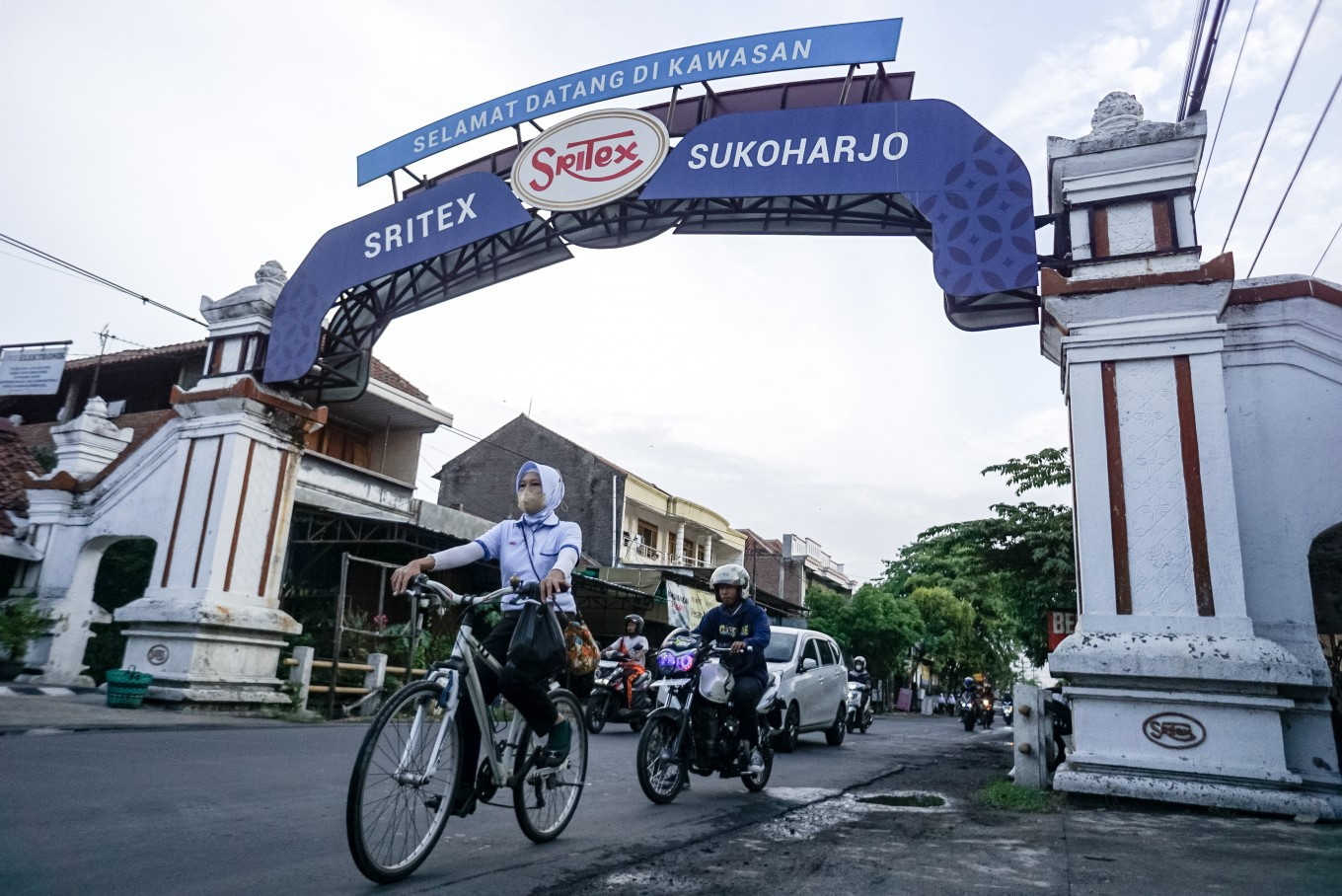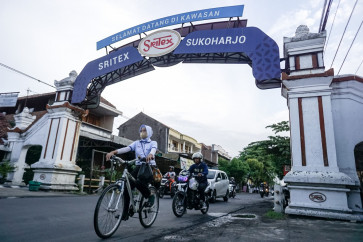Popular Reads
Top Results
Can't find what you're looking for?
View all search resultsPopular Reads
Top Results
Can't find what you're looking for?
View all search resultsAnalysis: Prabowo demands rescue of bankrupt Sritex
Change text size
Gift Premium Articles
to Anyone
P
resident Prabowo Subianto has ordered his ministers to rescue publicly listed PT Sri Rejeki Isman (Sritex), the biggest textile company in Southeast Asia, after a commercial court in Semarang, Central Java, declared bankruptcy. Sritex’s rescue comes after a sequence of downfalls of many other textile companies.
Prabowo has ordered four ministers of industry, finance, manpower and state-owned enterprises to solve the problems faced by Sritex, emphasizing that there should be no layoffs, ensuring job security for thousands of workers in the company. While Sritex files an appeal to the Supreme Court to settle its problem with PT Indo Bharat Rayon, the government is devising a rescue plan.
Recently, the Semarang commercial court granted Indo Bharat Rayon’s demand to cancel an amicable decision that was previously decided through the court’s homologation decision on Jan. 25, 2022, as Sritex failed to pay its remaining debt of Rp 101.3 billion (US$6.45 million) to Indo Bharat. This debt, however, was just a tiny portion of the total debts borne by Sritex. As of June 2024, Sritex’s total long term debt amounted to Rp 24.99 trillion, of which Rp 12.66 trillion was owed to 28 banks, with Bank Central Asia (BCA) being the largest creditor with Rp. 1.1 trillion, making Sritex too big to fail.
Sritex’s woes have been partly attributed to falling global demand for textiles and textile products. In addition, Indonesia’s textiles and textile products face massive competition from Vietnam, India and China, which offer lower prices. Sritex’s revenue as of June 2024 fell by 26.7 percent, mostly because of the drop in exports, as 43.02 percent of the sales came from exports that slumped by 43.3 percent. Although Sritex’s financial performance reflected cost savings in some areas, revenue fell behind cost, resulting in $23.7 million in operating losses.
Sritex is not the first to fall. As of September 2024, seven textile companies were shut down with 15,114 workers laid off. In addition to falling global demand for textile and textile products, industry players blame the government’s relaxed import policy that allows an influx of imported textile products, mainly from China.
The Trade Ministry responded to the industry’s plea by imposing blanket restrictions on imports of goods through Trade Minister Regulation No. 36/2023, but this sudden move caused massive congestion in the ports and protests from individual travelers as they were also targeted by the policy. This policy caused delays in cargo clearance and congestion of 26,000 containers at several seaports.8 This has caused difficulty for the textile industry in accessing raw materials for polyester as 90 percent of them are imported.
To address the congestion issue, the Trade Ministry issued Trade Minister Regulation No. 8/2024 to ease import barriers. However, this change has worsened conditions for the domestic textile industry as the government clears all containers at ports, including those containing textile products from China, allowing Chinese textile products to flood the Indonesian market once again. Following complaints from industry players, the government, through the Ministry of Finance, issued in August 2024 antidumping duties for Chinese textiles and textile products.



















